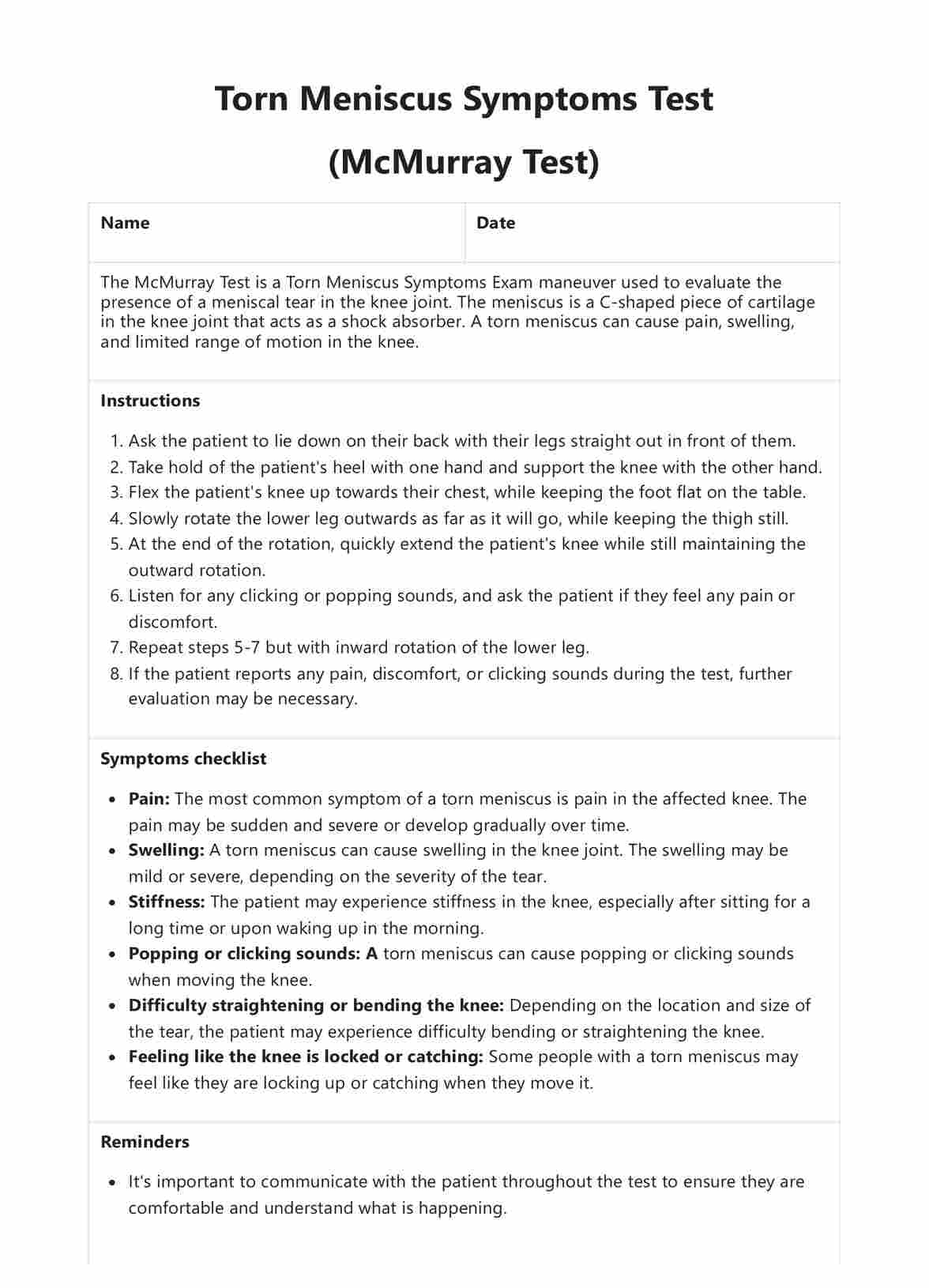The Torn Meniscus Symptoms Test or McMurray Test doesn't provide a scoring system. Instead, it is used to assess the presence of a tear in the meniscus. Some physicians may use certain criteria when evaluating the test results, but there is no single, universal scoring system.

Torn Meniscus Symptoms Test
Get access to a free Torn Meniscus Symptoms Test PDF to help diagnose the severity of your patient’s torn meniscus.
Torn Meniscus Symptoms Test Template
Commonly asked questions
The Torn Meniscus Symptoms Test is a simple, non-invasive way to assess the presence or absence of a meniscal tear. It is also relatively inexpensive and quick, making it cost-effective for doctors. Additionally, the test does not require a lot of specialized knowledge or equipment, making it accessible to many healthcare providers.
The Torn Meniscus Symptoms Test measures three key things: pain, tenderness, and joint instability. These three components are often used to assess the likelihood of a meniscal tear, as they indicate different kinds of damage and can provide insight into where the tear may be located and if it is affecting other structures.
EHR and practice management software
Get started for free
*No credit card required
Free
$0/usd
Unlimited clients
Telehealth
1GB of storage
Client portal text
Automated billing and online payments











